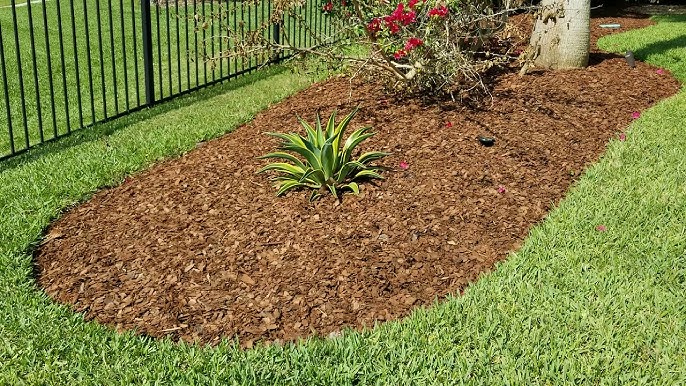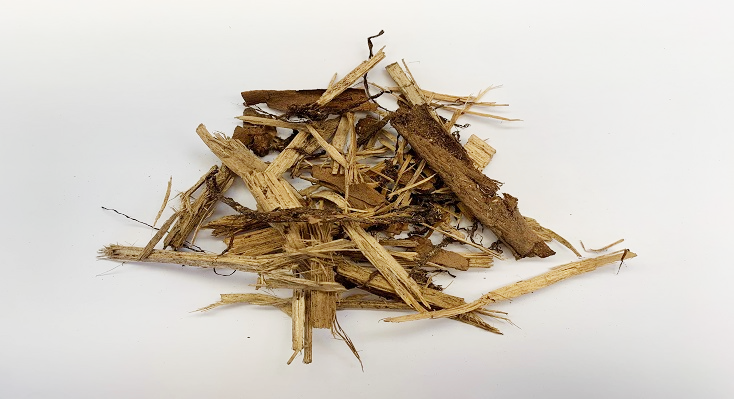When it comes to creating a beautiful, low-maintenance garden, mulch is one of the most powerful tools in your landscaping arsenal. Not only does it help retain moisture and suppress weeds, but it also adds a polished, professional look to your flower beds and pathways. Among the many types of mulch available, cedar mulch and cypress mulch are two of the most popular choices.
But which one is better for your yard? In this expert guide, we’ll break down the pros and cons of each mulch type and help you choose the one that best suits your landscape needs. We’ll also compare them to other alternatives like shredded pine mulch, landscaping bark mulch, and spruce mulch so you have all the information needed to make the right choice.
What is Cedar Mulch?
Cedar mulch is made from shredded or chipped cedar wood. It’s known for its pleasant aroma, attractive reddish color, and natural resistance to insects and decay.
Pros of Cedar Mulch:
-
Insect Repellent: Cedar contains natural oils that deter pests like ants, moths, and termites.
-
Long-Lasting: Cedar breaks down slowly, making it ideal for areas where you want to avoid frequent replacement.
-
Aesthetic Appeal: Its vibrant color and woody scent enhance the look and smell of your landscape.
-
Moisture Retention: Like all organic mulches, cedar helps soil retain moisture and stay cooler in the summer.
Cons of Cedar Mulch:
-
Price: Cedar mulch tends to be more expensive than other options like shredded pine mulch or basic bark mulch.
-
Slow Decomposition: While this means it lasts longer, it also adds fewer nutrients back into the soil compared to faster-decomposing mulches.
What is Cypress Mulch?

Cypress mulch is made from the bark and wood of cypress trees, typically harvested from southern wetlands. It is favored for its light color, insect resistance, and ability to stay in place during heavy rain.
Pros of Cypress Mulch:
-
Good Ground Cover: Cypress mulch holds its place well, even on sloped areas, making it great for erosion control.
-
Resists Decay: Cypress wood is naturally resistant to fungal growth and rot.
-
Insect Resistance: Like cedar, cypress contains compounds that repel pests.
Cons of Cypress Mulch:
-
Environmental Concerns: Some cypress mulch is harvested from old-growth wetlands, which can contribute to habitat loss. Always look for sustainably sourced cypress mulch if you choose this option.
-
Compaction Over Time: Cypress mulch can become compacted, limiting water and air flow to the soil if not refreshed regularly.
Cedar vs. Cypress: Which Should You Choose?

Choosing between cedar and cypress mulch depends on your priorities:
-
Want long-lasting mulch with great scent and pest control? Go for cedar mulch.
-
Need mulch that stays in place and prevents erosion? Cypress mulch may be a better fit.
If sustainability is important to you, make sure to look for certified or sustainably sourced cypress mulch. Cedar mulch, often harvested from by-products of cedar wood processing, generally has a smaller environmental impact.
Other Mulch Alternatives to Consider
While cedar and cypress are top-tier choices, don’t overlook other types of mulch that may suit your landscape needs just as well.
1. Shredded Pine Mulch

Shredded pine mulch is lightweight and decomposes faster than cedar or cypress, enriching your soil more quickly. It’s often less expensive and widely available, making it a great budget-friendly option.
-
Best for: Gardeners who want to improve soil quality quickly.
-
Downside: Needs to be replaced more often than cedar or cypress mulch.
2. Landscaping Bark Mulch
Bark mulch can come from various trees (pine, fir, spruce) and is often sold as nuggets, chips, or shredded bark. It offers good weed suppression and moisture retention while enhancing the look of your garden beds.
-
Best for: Flower beds, walkways, and areas with frequent foot traffic.
-
Downside: Some types (like large bark nuggets) can float away in heavy rain.
3. Spruce Mulch

Less common but equally effective, spruce mulch is typically made from northern spruce trees and shares many benefits with cedar, including a pleasant scent and slow decomposition rate.
-
Best for: Those looking for a long-lasting mulch with natural insect resistance.
-
Downside: Can be harder to find and may cost more depending on your region.
Final Verdict: Cedar or Cypress?
If you’re looking for a mulch that smells amazing, lasts long, and helps repel insects, cedar mulch is hard to beat. Its vivid appearance and durability make it a favorite for gardeners who want a “set it and forget it” solution.
On the other hand, if you’re dealing with erosion issues or want a more neutral appearance, cypress mulch might be the better choice—just be mindful of where and how it’s sourced.
Still not sure? You can always test a small batch of each in different parts of your garden to see how they perform over a few months. No matter which you choose, both cedar and cypress will serve you well—especially when compared to untreated soil or bare ground.

